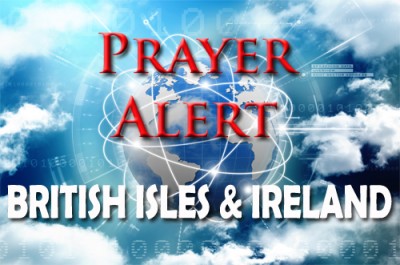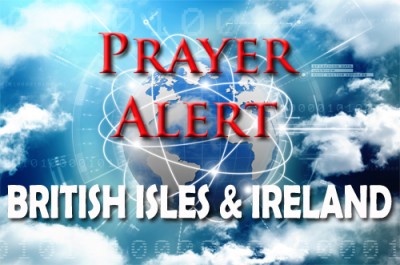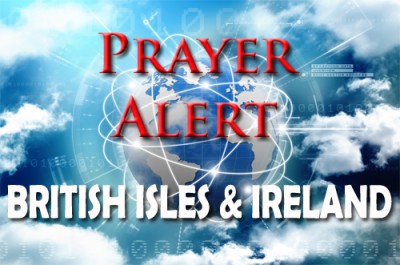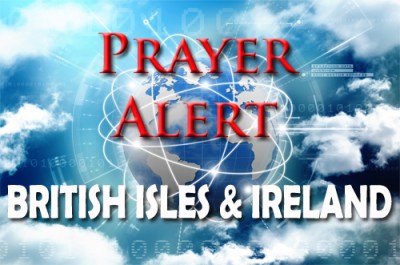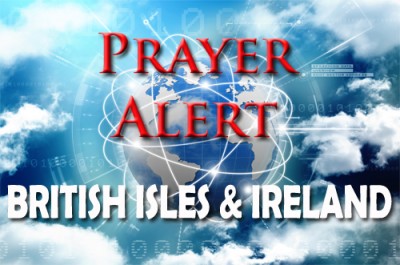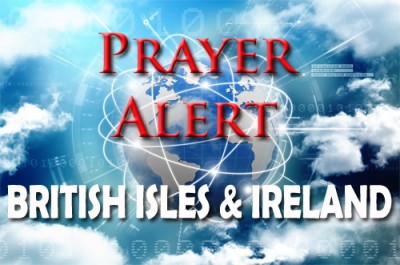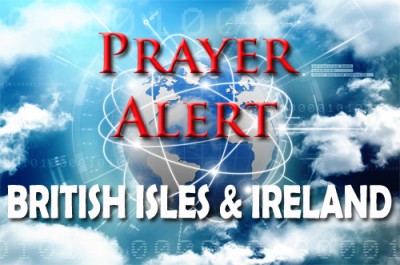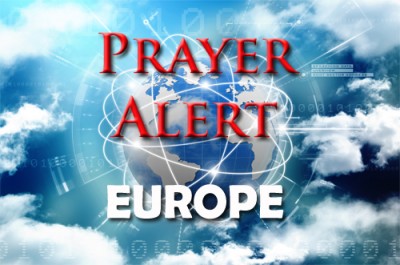Post-Brexit: keep praying
08 Jul 2016As the implications of the referendum vote continue to sink in, it is vital that we keep praying for this nation at such a significant moment in its history. May Christians across the nation know that in these uncertain times God is our rock, and live and proclaim the good news of the Gospel in villages, towns and cities. We also pray blessing on Europe, that the Gospel will flood the nations, remove the barriers and make the way for His kingdom to come to every nation on the continent. For more useful material, click on the 'more' button and download prayer topics based on the Lord's Prayer.
Political parties in transition or disarray
08 Jul 2016After the second round of voting by Conservative MPs yesterday, the two remaining candidates are Theresa May, the Home Secretary, and Angela Leadsom, minister for energy and climate change. There will be a postal vote by Conservative party supporters to decide the outcome: the winner will become the next Prime Minister. Meanwhile, it is still uncertain whether Jeremy Corbyn will face a challenge to his leadership of the Labour party, and Nigel Farage has announced that he is stepping down as leader of the United Kingdom Independence Party (UKIP), which supported Brexit.
Chilcot report criticises Blair
08 Jul 2016The official inquiry into the Iraq war, which took seven years to produce, has concluded that Tony Blair overstated the threat posed by Saddam Hussein, sent ill-prepared troops into battle, and had 'wholly inadequate' plans for the aftermath. The chairman, Sir John Chilcot, said the 2003 invasion was not the 'last resort' action presented to MPs and the public. There was no imminent threat from Saddam - and the intelligence case was 'not justified'. Mr Blair apologised for any mistakes made, but not for the decision to go to war. However, the relative of one of the soldiers who died in the war described him as 'the world's worst terrorist'.
On Monday, the Government's agreement with the British Medical Association (BMA) on a new contract was rejected by junior doctors by 58 to 42 per cent, on a turnout of 68 per cent. The result forced the immediate resignation of Johann Malawana, chairman of the Junior Doctors’ Committee (JDC), who had recommended the deal. He called on the Department of Health to respect the result of the vote, but it is understood that the Government plans to press ahead and impose the new contract. The junior doctors said they were prepared to embark on further strike action, amid growing divisions within the union.
Battle of the Somme centenary
08 Jul 2016Last Friday was the hundredth anniversary of the Battle of the Somme, the bloodiest battle in history. This occasion was marked by special services in many different locations, including one in Westminster Abbey attended by the Queen, the Duke of Edinburgh, and the Prime Minister, among others. The Bishop of London, Richard Chartres, said that as we remember this battle we need to be 'agents of reconciliation, rejecting those who would stir up hatred and division and instead working for the reconciliation that will ensure that our children will never have to endure what the men of the Somme so bravely endured.'
'Love your neighbour' initiative in Birmingham
08 Jul 2016One unpleasant outcome of the Brexit vote has been a rise in hate crime and racial abuse. Last Friday, by way of contrast, the Diocese of Birmingham launched a 'love your neighbour' movement, with the aim of encouraging people to be kind and celebrate our differences. The launch was attended by over 150 people of all faiths and none including representatives from business, police, parliament, the arts, community organisations, and local government. Bishop David Urquhart challenged people to move from Leave and Remain to Peace and Reconciliation, and to be willing to be kind to people whoever they are and whatever their views are. Although the theme of ‘love your neighbour’ appears in many holy books, it was suggested by the Humanist Association, as a message with which we can all agree. For further details, see
Crisis in ambulance provision
08 Jul 2016Lives are being ‘put at risk’ because of a crisis within the Northern Ireland Ambulance Service (NIAS), one of its workers has claimed. The emergency medical technician (EMT) said that the system for managing shifts in the service was 'shambolic'. The NIAS said it wants to reassure the public that calls are being prioritised to ensure rapid response times. On Saturday the NIAS was twelve crews short because of a combination of sickness, staff and cancelled overtime. The NIAS said that this situation was not unusual at the weekend. It also said it had become reliant on the support of the independent and voluntary sector over the last two years. The EMT worker, who did not want to be identified, has worked for the service for over a decade and said the situation was the worst he had ever seen.
EU’s post-Brexit paralysis
08 Jul 2016Two weeks after the British referendum vote, the European Union is still reeling from the result. In Brussels and Strasbourg a strange sense of paralysis has taken hold, as the mysterious momentum that propels the EU machinery has dissipated. 'Typically at this time of the year everyone is rushing to get things through before the August break,' said one parliament official this week in Strasbourg. 'This year no one knows quite what to do.' For example, a climate emission package which had been due to be announced on 20 July may be delayed. The proposal – which is hugely important for Ireland, given the country’s challenge in reaching EU emissions targets – includes detailed emissions calculations for each member state, including Britain. However, this week there were signs that the EU legislative process was churning back into action, with the commissioners announcing two decisions, one to finalise a trade deal with Canada.
